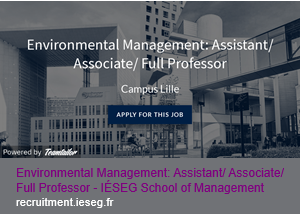
On behalf of the USSEE Board of Directors and staff, I would like to extend my best wishes to you all as you adapt to these unprecedented global challenges related to the COVID-19 pandemic. I realize that many of you have had to rapidly shift your professional and personal lives in adherence to new institutional policies, government advisories, and social norms in response to the spread of the virus. Some of you may be facing financial uncertainty or concerns about the health of yourselves or loved ones as well. Most of us are dealing with added stress and anxiety about this emerging issue, and many of my colleagues and students have described challenges by focusing on work activities.
Given these circumstances, please continue to keep your health and safety a top priority, and to calibrate your expectations of yourselves and your colleagues and students as we all struggle with new ways of living, working, and socializing in these unusual times. Given that we are a dispersed community of colleagues and fellow members, USSEE is working to provide ways for us to connect virtually through webinars, recorded videos, and other modes of communication that you may find useful in the classroom or other settings. Best wishes to you all for patience and courage as we work collectively to help contain the spread of the virus, and to protect ourselves and public health.
— Robby Richardson, USSEE President
Online Teaching Materials:
USSEE has added a section on our website of Online Teaching Materials that is being frequently updated as new materials are sent. If you have any resources you would like to share please email them to usseeboard@gmail.com
Upcoming Webinars:
Herman Daly and Kate Raworth on Pandemic-Resistant Economies On Andy Revkin’s Earth Institute “Sustain What” Webcast
Tuesday, March 31 LIVE, Noon, US Eastern time,
Join our special Earth Institute conversation with leading sustainability analysts from two generations rethinking how human progress should be pursued and measured. Herman E. Daly, a founding force behind “steady-state economics,” will examine possible paths to less fragile global systems with Kate Raworth, whose “doughnut economics” model aims to build economic policies and metrics that put thriving ahead of growing.
pscp.tv/revkin | twitter.com/revkin | youtube.com/anrevk | fb.com/andrew.revkin.5
Developments in Finance and Sustainability
Friday, Apr 3, 10:00 AM EDT
This webinar is the second online conference on Sustainability and Finance organized and supported by Oikos International and the Harvard Extension School’s Student Environmental Club. It brings together researchers, students, activists, and professionals to discuss recent developments in finance and sustainability. https://www.eventbrite.com/e/oiconference-developments-in-finance-and-sustainability-tickets-96756825269
Solve Climate By 2030: State Webinars
Tuesday, April 7
On the evening of Tuesday, April 7th, the Center for Environmental Policy at Bard College is coordinating 55 university-hosted webinars, one in almost every state in the US and internationally, focused on ambitious but feasible state and local solutions to help solve climate by 2030. At colleges, universities and high schools, teachers can “make climate a class” (on-line) and help refocus the nation and the world on the challenge that still lies beyond, Covid19: climate change.
NOTE that the webinars will be recorded, so you can view and discuss them in class ANYTIME DURING APRIL AND MAY.
What can you do?
- Take a break with your students from whatever you had planned during one day in April, and use the recorded April 7 New York webinar, plus the subject-area online resources, to #MakeClimateaClass. Register here for the webinar(scroll down and click on your state).
- Pass on the opportunity to colleagues at other colleges, universities and high schools. Covid-19 has shown how fragile our health and economic systems are too extreme events. Our best climate scientists have also told us clearly that, unchecked, climate change will turn our lives into a series of unending extreme events: floods, droughts, rising seas, pests and disease, more extreme storms and hurricanes, leaving hundreds of millions of people homeless and on the move.
Follow us:
Twitter: twitter.com/ussee
Facebook: www.facebook.com/ecologicaleconomics
Blog: www.ussee.org/blog


